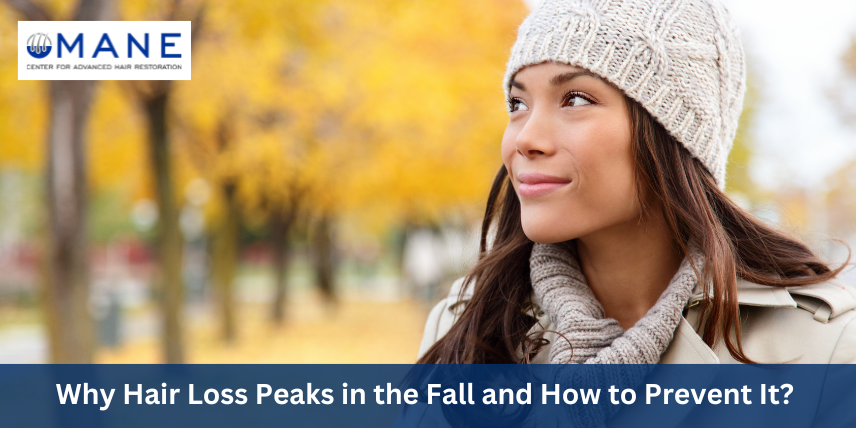


As fall brings cooler weather and cozy sweaters, it also brings a common occurrence of more hair shedding. While it may seem alarming, this seasonal hair loss is natural and happens to many people yearly. The change in season can trigger a natural shedding process, where your body gets rid of hair that has reached the end of its growth cycle. It’s a temporary phase, and understanding why it happens can help ease worries.
Learn why fall triggers hair shedding and discover easy ways to maintain healthy hair.
Seasonal hair loss may sound unusual, but it's a natural and predictable process. Just like your body adjusts to changing seasons, your hair does too. During certain times of the year, especially fall, it’s common to lose more hair than usual.
To understand why seasonal hair loss happens, it helps to know the life cycle of your hair. Each strand of hair goes through three main phases:
Now that we understand the hair growth cycle let’s explore why fall seems to trigger a bit more shedding:
Hair naturally enters the shedding phase in the fall after faster growth during the warmer months. As temperatures drop, your body sheds hair that has reached the end of its growth cycle, making it seem like more hair is falling, though it’s a normal part of the process.
Cooler temperatures, lower humidity, and less sunlight in fall can dry out hair, making it more prone to breakage and shedding. Reduced sunlight also means less Vitamin D, which is important for hair follicle health.
Fall often brings increased stress from changes in routine, like back-to-school pressures and busier schedules. Stress can trigger telogen effluvium, causing premature shedding of hair. These seasonal stressors can heighten hair loss.
As daylight hours shorten in fall, changes in melatonin levels can affect the hair growth cycle, leading to more shedding. Hormonal shifts during this time can worsen hair loss for those sensitive to these changes.
While you can’t stop the fall shedding cycle, there are plenty of ways to keep your hair strong and healthy during this time of year. Let’s get creative with a few simple tips for preventing hair loss:
Eat a balanced diet of vitamins and minerals, including biotin, iron, zinc, and omega-3 fatty acids, to nourish your scalp and promote strong hair. Focus on leafy greens, lean proteins, and healthy fats to support hair growth.
Engage in relaxation techniques like yoga, meditation, and deep breathing to reduce stress that contributes to hair loss. Prioritize sleep, stay active, and make time to unwind.
A healthy scalp is essential for hair growth. Massage your scalp regularly to improve blood circulation, and use gentle shampoos and conditioners to prevent dryness and breakage.
Minimize damage by avoiding excessive heat styling, tight hairstyles, and harsh chemicals. Use mild products, limit heat styling, and air-dry your hair when possible. Gently detangle wet hair using a wide-tooth comb.
If fall hair loss is a concern, consider professional treatments like PRP or laser therapy to stimulate hair growth and improve scalp health. Seek personalized advice from a dermatologist or trichologist.
Hair shedding in the fall is normal, but if you notice large patches of thinning hair, a rapidly receding hairline, or if the shedding continues well after the season has changed, it’s time to take action. Excessive hair loss may point to an underlying concern that needs professional attention.
A dermatologist or trichologist can help unravel the cause and guide you toward effective treatments tailored to restore your hair’s health and vitality.
Fall hair loss is a natural process, but it doesn’t have to be a cause for concern. You can reduce shedding and keep your hair healthy through the season by focusing on a balanced diet, managing stress, and using a gentle hair care routine. If hair loss continues or worsens, seeking professional advice can help address any problem. With the right approach, your hair can stay strong and vibrant throughout the fall season.
Fall hair loss doesn’t have to be your new normal. At Mane Center for Advanced Hair Restoration, we offer personalized solutions to bring your hair back to life.
Ready to see the difference? Book your consultation now!